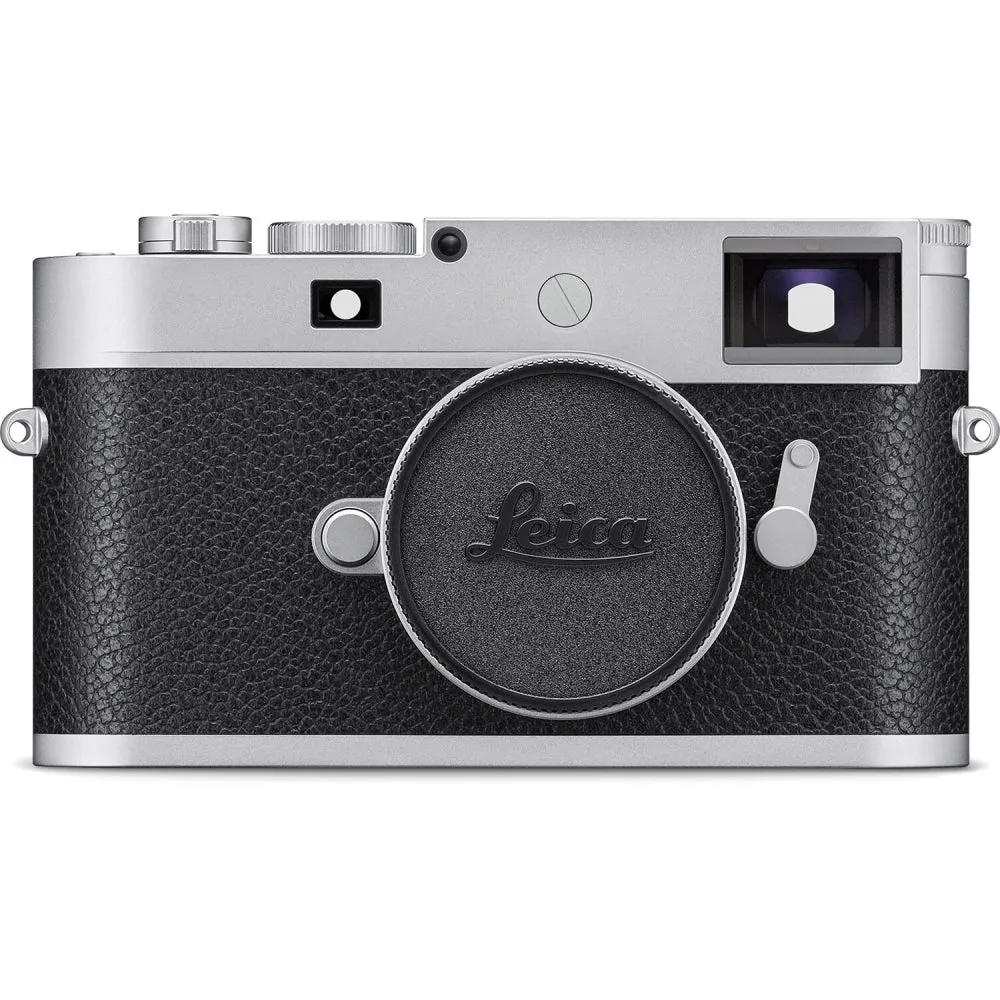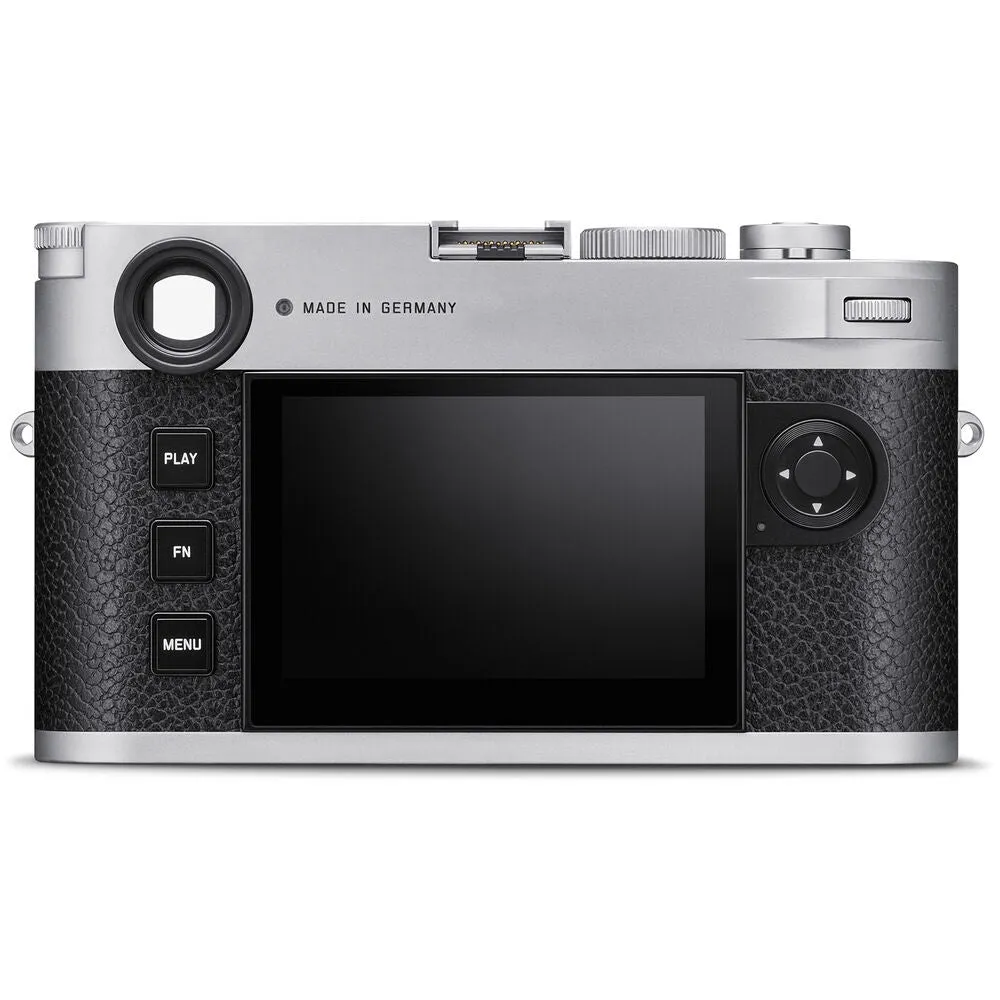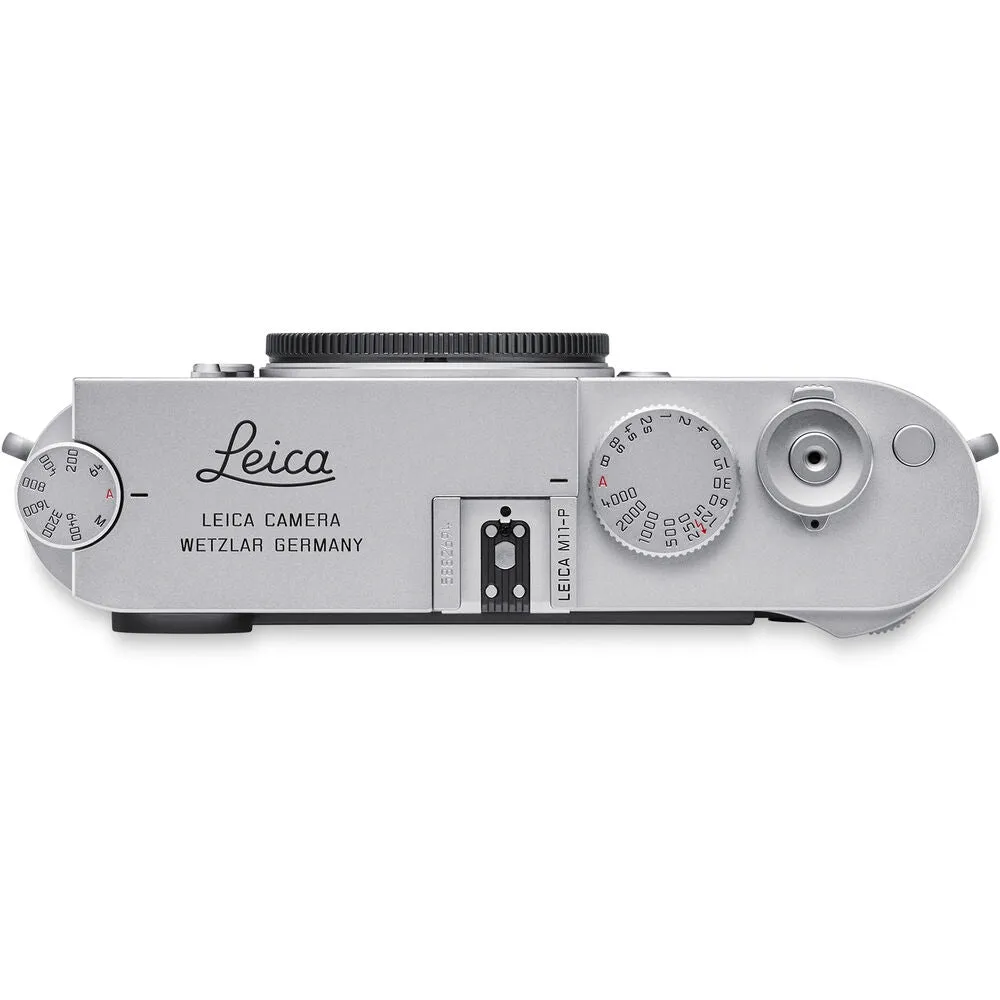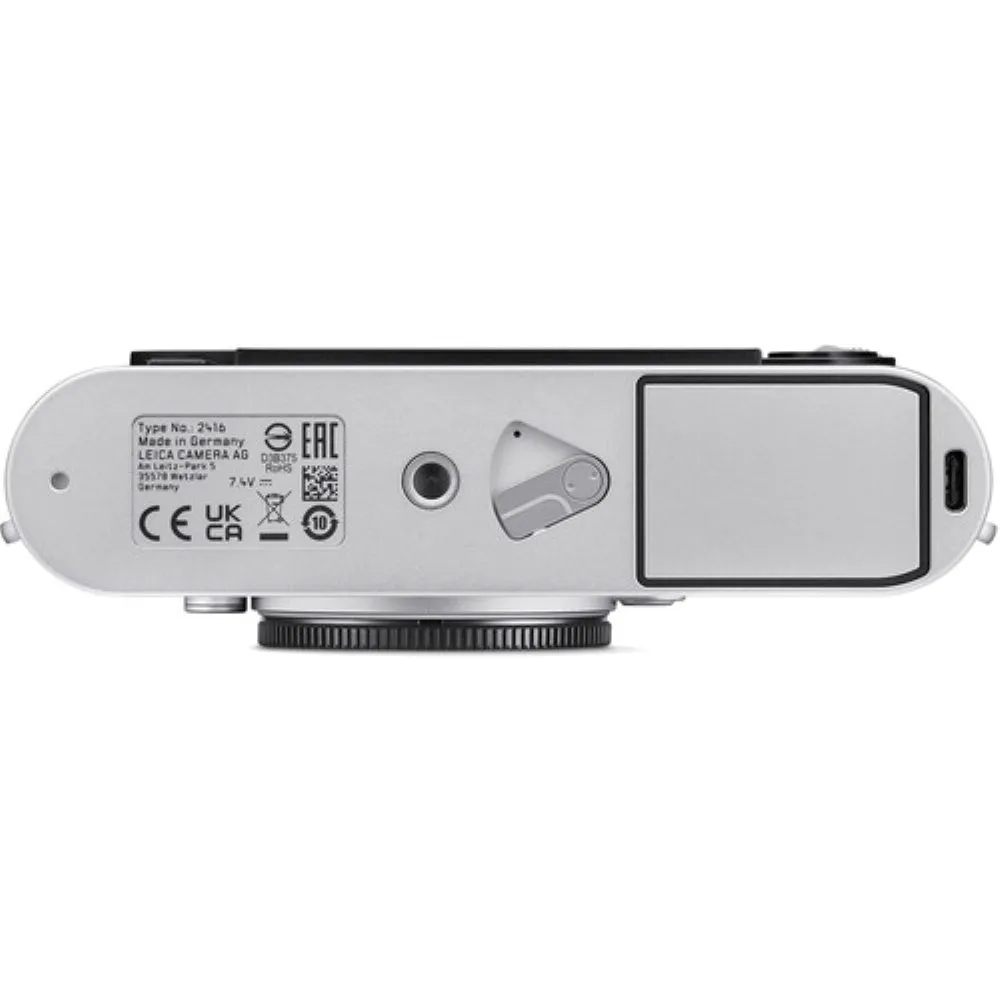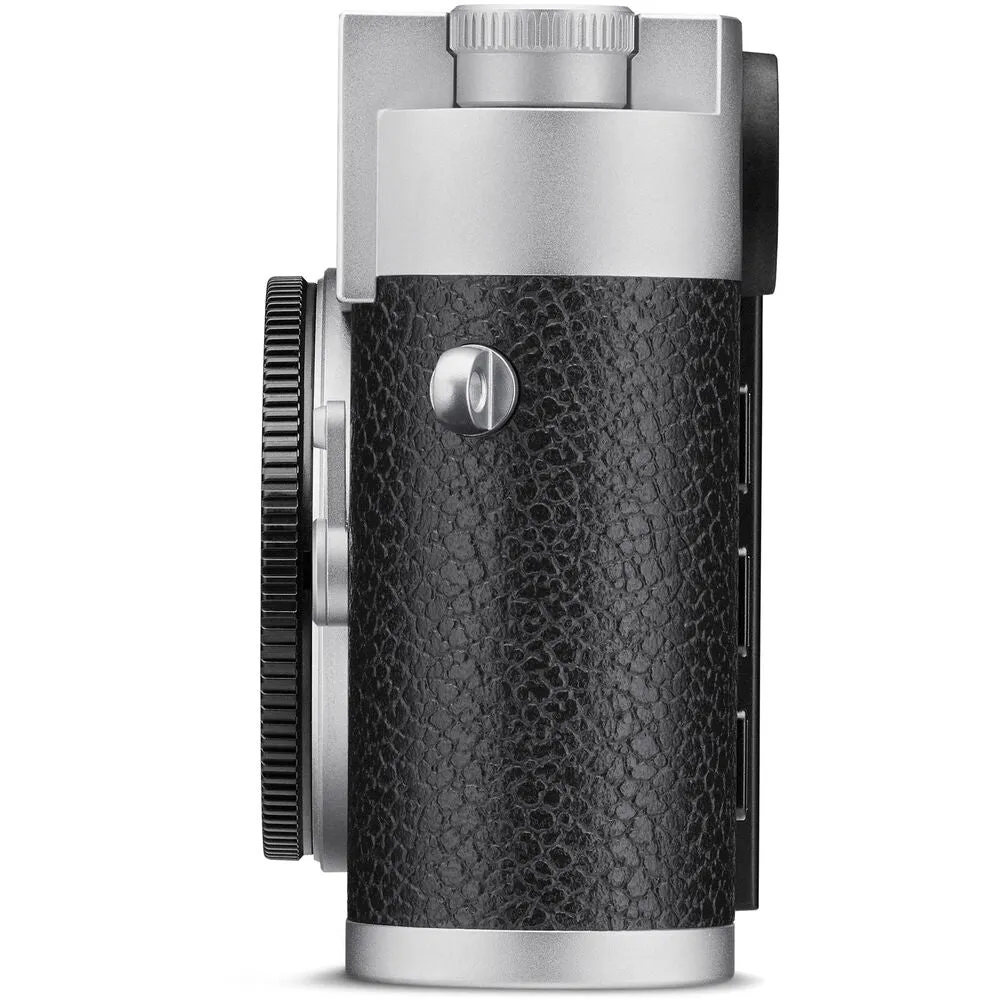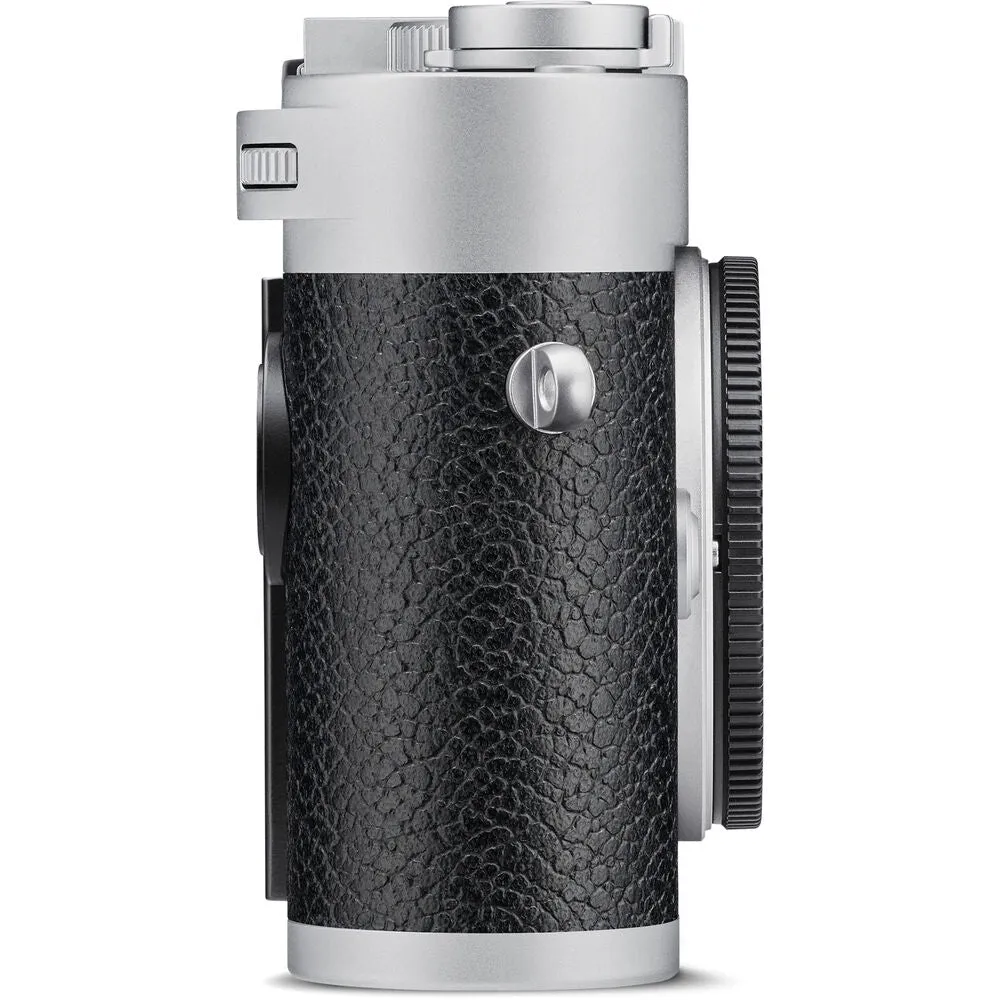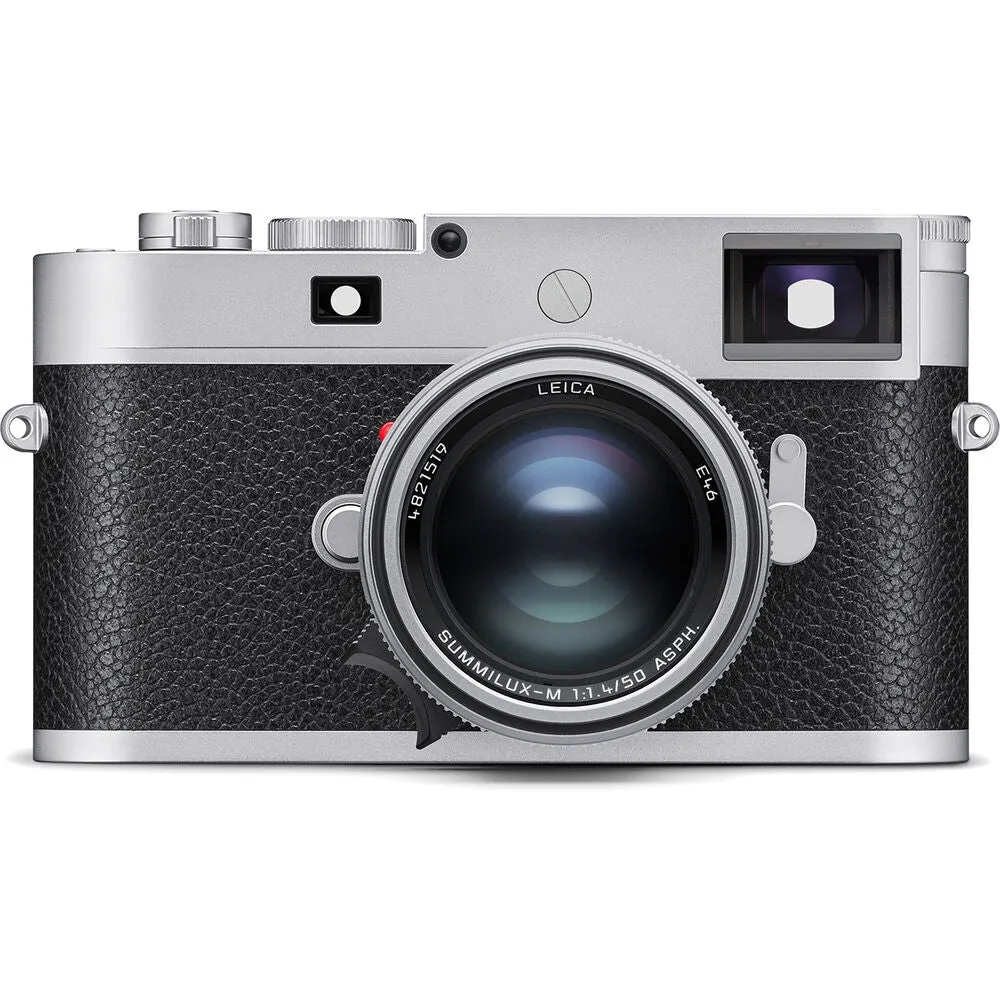Leica cameras have played a pivotal role in historical documentation. The M-series has consistently been the choice of photojournalists, renowned for capturing significant images throughout the years. The Leica M11-P continues this esteemed legacy, enhancing the modern technology and timeless design introduced with the M11. Notably, it is the first camera globally to incorporate Content Authenticity Initiative technology, aimed at restoring authenticity to digital narratives.
Professional Upgrades
Leica has a longstanding tradition of enhancing their "P" camera models with modifications that cater specifically to the needs of professionals and photojournalists. The M11-P upholds this legacy, featuring a classic design that replaces the red dot logo with a more understated appearance. It also comes with a few other enhancements:
- Unobstrusive no logo design and dark chrome viewfinder.
- Engraved Leica script on the top cover plate.
- An increase of internal storage to 256GB.
- Sapphire cover glass for rear touchscreen LCD.
Leica Content Credentials with Content Authenticity
The M11-P stands as the inaugural camera globally to incorporate Content Authenticity Initiative (CAI) technology. The CAI represents a collaborative initiative spearheaded by Adobe in conjunction with several organizations, such as The New York Times and Leica. Its main objective is to establish a standard for the attribution of digital content.
In the M11-P, this technology is referred to as Leica Content Credentials. The camera employs a secure processing chip to encrypt image metadata at the moment of capture. This metadata can subsequently be independently verified and enhanced through compatible applications like Adobe Photoshop. As a result, viewers are able to authenticate the origin of the image and ascertain its authenticity. The objective is to instill greater confidence in viewers regarding the images they encounter while offering creators an additional means to retain credit for their work.
Advanced Imaging Technology
60MP Full-Frame BSI CMOS Sensor
The M11-P incorporates a high-resolution design similar to that of the M11, featuring a 60MP full-frame CMOS sensor with a back-illuminated (BSI) architecture. This design enhances noise performance and accelerates readout speeds. The increased resolution is particularly advantageous for detail-centric applications, such as landscape and architectural photography. Additionally, the noise-reduction capabilities of the BSI design contribute to improved clarity and color fidelity in low-light situations, especially when utilizing higher ISO settings.
Furthermore, the sensor's physical configuration includes an advanced ultra-thin dual-layer filter glass, which effectively absorbs UV and IR wavelengths, resulting in enhanced clarity and more precise rendering when using M lenses.
Triple Resolution Technology
In addition to the 60MP resolution and BSI architecture, M cameras introduce Triple Resolution Technology for the first time. This innovative pixel binning technique enables photographers to choose from 60MP, 36MP, or 18MP outputs, with each resolution utilizing the entire sensor area and delivering vibrant 14-bit color. By pixel binning, rather than cropping, the lower resolutions have improved dynamic range and noise levels:
- 60MP: 14 stops of dynamic range, highest resolution
- 36MP: 15 stops of dynamic range, best balance of resolution and noise
- 18MP: 15 stops of dynamic range, lowest noise levels
Maestro III Image Processor
The Maestro III processor enhances the processing speed and incorporates Triple Resolution Technology in the M11-P, while also expanding the sensitivity range compared to previous M camera models. An ISO range of 64-50000 is now offered, allowing for improved detail, quality, and natural color reproduction at lower ISO levels. Additionally, the Maestro III supports continuous shooting at a rate of up to 4.5 frames per second and ensures rapid file saving, contributing to a more intuitive shooting experience.
Imaging Improvements
The M11-P is still a photo-only camera that prioritizes manual operation, but a variety of improvements and functional updates have been made to make the M11-P the most contemporary M camera yet:
- An electronic shutter function now permits shooting at shutter speeds up to 1/16,000 sec, which is perfect for working with faster f/0.95 lenses without the need for ND filters. A mechanical shutter still offers shutter speed support up to 1/4000 sec and flash sync at 1/180 sec.
- Two digital zoom steps can simulate working with longer focal length lenses by cropping into the image slightly, at 1.3x (39MP) and 1.8x (18MP) levels. These are reversible crops when recording a DNG or permanent crops if shooting straight to JPG.
- Multi-field exposure metering is available in addition to spot and center-weighted average, which helps reduce the need to meter and then re-compose before shooting.
- Long Exposure Noise Reduction helps to reduce the appearance of noise but can also be disabled for faster saving times.
Traditional Rangefinder Design
The M11-P showcases a design that is both timeless and reminiscent of the original M camera, the M3, which was introduced in 1954. This iconic and easily identifiable shape emphasizes user-friendly handling and shooting, while also presenting a refined and minimalist aesthetic.
Optical Viewfinder and Rear LCD
The optical viewfinder features a spacious and luminous 0.73x-magnification rangefinder, equipped with automatic parallax compensation and bright-line frame lines that correspond to the image sensor size at a focusing distance of 6.6 feet. Additionally, the camera's front includes a viewfinder frame selector, allowing users to manually adjust the apparent image field to better visualize scenes with different focal lengths. The available options include focal length pairs of 35mm/135mm, 28mm/90mm, and 50mm/75mm.
The 2.95-inch rear touchscreen LCD, boasting a resolution of 2.3 million dots, has been redesigned to provide enhanced brightness, thereby improving visibility in bright sunlight. The M11-P further upgrades the display with sapphire cover glass, which significantly increases scratch resistance. The revised menu layout aligns with the Q and SL systems, facilitating more intuitive navigation and quicker adjustments directly from the initial menu page. Additionally, live view stabilization minimizes the effects of camera shake on the rear LCD or the optional Visoflex 2, making it easier to achieve precise manual focus with longer focal length lenses.
Updated Body Design and Handling
Despite the M11-P's similarity to past M cameras, it features a variety of notable changes to its body design:
- This black finish version of the M11 features an aluminum top plate with a scratch-resistant coating. This design is about 20% lighter than the silver-chrome version, which features a brass top plate, and weighs 1.2 lb with the battery installed.
- The M11 line is the first M camera to not feature a removable baseplate; instead, the M11-P borrows a design from the Q and SL systems and uses a new BP-SCL7 battery that is inserted directly into the base of the camera body.
- BP-SCL7 lithium-ion battery has 64% more capacity than the previous generation's battery and is CIPA-rated for 700 shots per charge. However, if working with the optical viewfinder only, approximately 1700 shots per charge is possible.
- Design also incorporates a single UHS-II SD memory card slot within the battery compartment.
- Built-in 256GB memory, increased from 64GB in the base M11, means you can forgo using a memory card altogether, or use the internal memory in conjunction with an SD card to simulate having dual card slots for splitting file types or for overflow storage. Image files can also be transferred from the internal memory to the SD card for easy backup.
- USB type-C port on the base permits in-camera battery charging and file transferring.
Wired and Wireless Connectivity
- The USB type-C port can be used in conjunction with the included FOTOS Cable, which allows direct attachment to an Apple iPhone via the Leica FOTOS app for easy file management and sharing.
- Wi-Fi and Bluetooth can also be used for wireless connecting the camera to an iOS device using the FOTOS app.
- In-app geotagging is possible along with the ability to select favorites and apply ratings to images via your mobile device.




